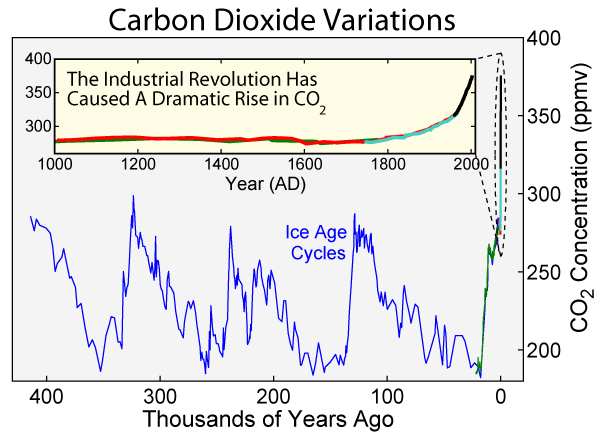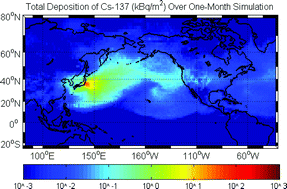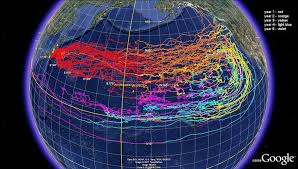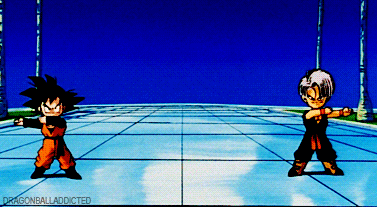I love you Tag, but you don't know what you're talking about.
First off, radioactive waste is more harmful to all living things. I can't believe that I actually have to defend this statement, so I won't anymore.
Second, when did I deny our impact on the climate? All I said was that we cannot be sure of just how much of an impact we've had on carbon levels in the atmosphere. I personally do think that we're contributing significantly, but I'm not going to say that we're the only reason the carbon levels are fluctuating. Maybe you should go back to the graph I posted on the previous page (copypasta'd for your convenience):

Please tell me that I'm not the only one who notices just how much those blue dots and error bars are fluctuating. Now, for comparison, let's look at just the last few hundred thousand years:

Notice how the last one is only on a scale of like 400 parts per million, and how the first one is on a scale of 8000 parts per million? What does this tell you? It tells me that the Earth has seen a heck of a lot of carbon in its atmosphere before, and that whatever we're doing to the planet right now might not be ideal, but it's a lot better than risking the increased radiation of our children and their children's children's children's children's children.
Get the picture?
Radioactive waste isn't widespread? What do you see here?

Those are the ground level Cesium concentrations almost a month after the Fukushima incident.

And this shows the total cesium deposition in that area over a similar time span.
That's Fukushima's aftermath, and that's just what's in the atmosphere.
Here's something to show how the wreckage in the water is getting carried around the Pacific:

Maybe you haven't noticed, but there haven't been a whole lot of nuclear bombs going off lately. Instead, we've been building lots of fission power plants, all ripe for the next stupid human error or environmental disaster to cause the next big fission accident. And all that Uranium that we're burning, well, it's making more and more radioactive waste that we're "safely" disposing of underground. Well, guys, why don't you tell me what's going to happen when all of these underground nuclear waste dumps start leeching into the surrounding water supply? When they start elevating the background radiation levels in the very soil in which we are planting our food? If you think that this sort of thing isn't an inevitability in the long run, then you're deluding yourself.
I'm not talking about fission with any hyperboles, Tag. You're the one who said that I was, so I'd like for you to please find where I was making some sort of exaggerated statement about the dangers of fission. Everything that I've said so far is true as far as I'm aware, and I've learned a whole lot about the subject. Believe me, I'm still paying for the student loans.
Anyway, it's stupid to say that we should stop investing in alternative energy because it's not going to stop the developing nations from using fossil fuels in the meantime. I never said that, and it's stupid for you to assume that that's what I meant. What I meant is that there's nothing that you or I can do or say in this moment or in the next couple decades that is really going to have any major impact on how humans are influencing the environment or producing our energy. Sure, we should keep researching what we can, figuring out as much as possible about new energy sources, but we shouldn't think that any drastic changes in our environmental/energy policies are going to occur any time soon.
What's going to drive energy policy change is when the next big thing comes along, sort of like when coal power and steam engines were discovered. That's what fusion is going to be like, and that's why I keep harping on and on about it's benefits.
–- Update From New Post Merge ---
@Supernova122:
Are you sure you understand the relative impacts of these forms of pollution?
I shall dispense with the subtext and tell you that I think you don't.
And I'll go ahead and say that you're full of horse shit because this is precisely what I've been studying for the last fucking decade.
Because it would be dumb not to contain it.
Very funny, but you know that's not what I was asking, right? Why do you think that it's better to irradiate the planet than to do what we can to find other ways to diminish carbon emissions? That's what I'm asking you.
You're saying that we are already doing a great job of containing our nuclear waste. I've pointed out to you over and over again how that's just a blatant fallacy. Tell me why you think that what we are doing right now is sufficient. Please.
Certainly for general ionising radiation, fission by-products, nuclear disasters (even Chernobyl) and weapon tests together pale in comparison to natural sources, particularly naturally occurring radon …
In terms of impact on humans exclusively, we get on average far more radiation from X-rays (as in for imaging purposes) than we do from the above mentioned fission sources.
Nobody's going to argue fission's a great eternal solution, especially with the way we deal with nuclear waste now, but it is not really tenable to argue against fission power in the medium term based on the impact of fission waste products.
Also, I'm definitely going to call bullshit on the radiation "effectively lasting forever." It will become negligible well before the doom of humanity. Unless you're expecting an apocalypse pretty soon.
Yes, there are lots of sources of radiation that we already have to contend with, already plaguing the species with more cancer than we'd ever want to have to manage. Now, you're telling me that you think it's a good idea to exacerbate that problem?
I'm going to assume that you know what a half-life is. But, did you know that there are lots of fission byproducts that have half lives over a quarter million years long? Do you understand that that's a lot longer than the human race has even existed?
Maybe if you understand all of that, then you'll begin to understand why I think our fission waste is likely to outlast even us.
This is such a non-point though. Nobody here (or anywhere??) is arguing to the contrary.
I say Problem X is better than Problem Y.
You say Problem X is worse than Problem Z.
Do you now see what I mean about you missing the point?
You say that irradiation of the planet by nuclear waste and the risk of fission power plant meltdowns is a better alternative than continuing to burn fossil fuels in the way that we have been. So what? Making more fission power plants is not going to significantly reduce our dependence on fossil fuels any time soon. You think that developing nations are going to actually try to make fission power plants and other alternative energy sources?
I'm way more comfortable with them building more coal plants and getting it right than taking their chances with fission power plants and inevitably getting it really wrong. We've all seen just what can happen when a rushed, developing nation tries to build something that's a little beyond their understanding/ability (Chernobyl, Three Mile Island, etc.).










 Now lets compare this to other sources of background radiation. I've been told that avg earth background is about 0.2 uSv/h
Now lets compare this to other sources of background radiation. I've been told that avg earth background is about 0.2 uSv/h